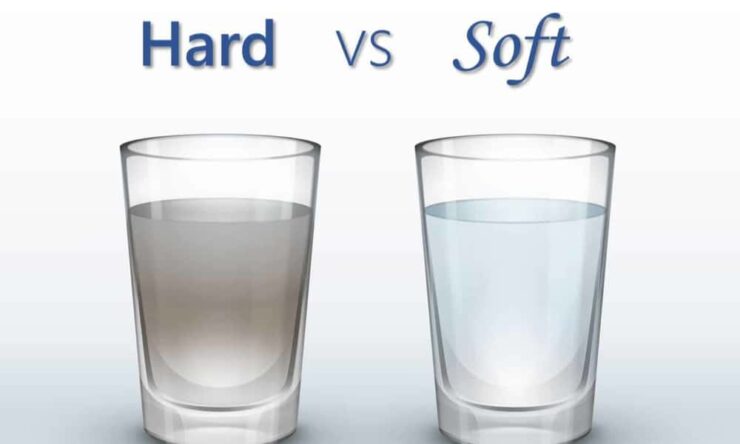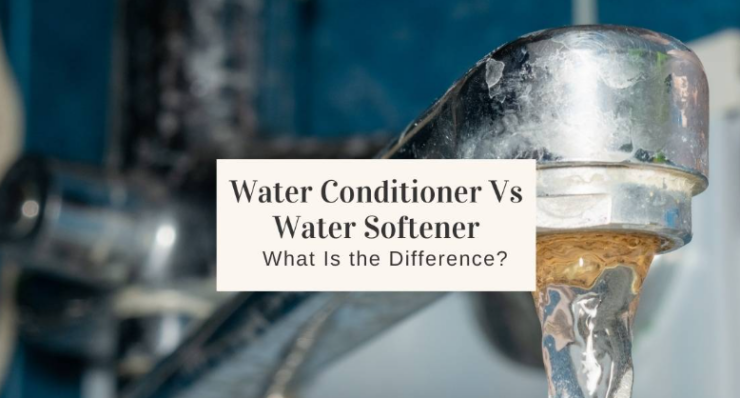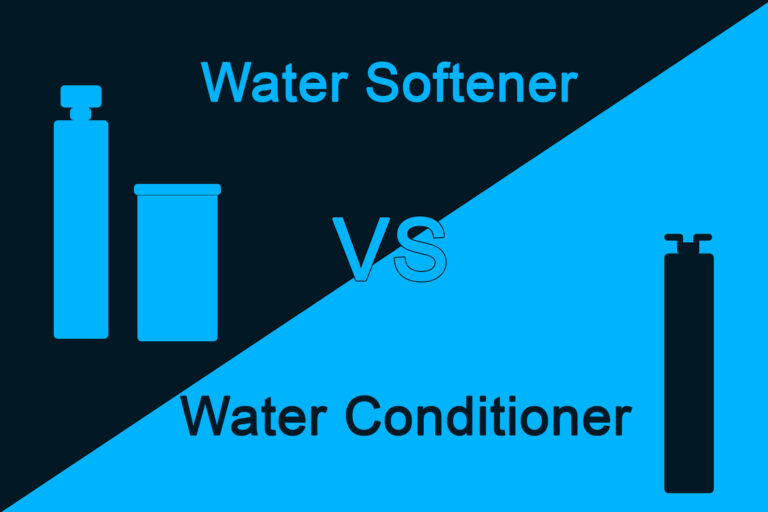You might think that both water conditioners and softeners are one thing, but that is not true. There is a slight difference between both of them. If we talk more about it according to the science and how it works, then A water conditioner, also known incorrectly as a “salt-free water softener,” addresses some of the issues associated with hard water; there are two types of water, hard and soft water, but it does not produce soft water. These are the water softener’s properties and are usually used for softening.
A water conditioner changes the chemistry of hardness particles for a limited time, resulting in less scale build-up in plumbing. The water conditioner works in a different way; the water conditioner removes additional chemicals from your water, such as chlorine, and uses less water than a water softener. The distinctions between these products and their unique filtration capacities will be described. This way your work will become easier. A water filter’s dual functions are to lessen dangerous pollutants and improve the flavor of water. Further in this article, we will talk about water conditioning and water softening.
Here Are Some Of The Things Related To Both Water Conditioning And Softening:
Let’s check out the details related to water conditioning and softening and how it works so that you can have a clear vision of and know how to use it properly. If you want to know more about water conditioning, you must check out a reliable source and ensure that you can use it properly. Further, we will talk about both terms in detail so that it can become easier for you to understand them.
Similarity:

The similarity between them is that they work on hard water. Hard water contains minerals such as calcium, magnesium, and silica. The presence of these minerals causes a hard scale. The primary similarity between the two systems is that they both treat hard water. Hard water should be treated so that it does not cause other problems. Hard water contains a high concentration of minerals. These minerals can range from calcium to magnesium to silica. These minerals can wreak havoc on heat-exchange surfaces, pipes, and water fixtures in your home or business. If the hard water flows through your pipes, it will allow the water to flow through and not produce any clogging problems.
Scale buildup can cause pipes to become completely clogged over time. It will eventually make it hard for you to have a good flow of water, which is why softeners and conditioners are used. When limescale accumulates on a heating element, it insulates and prevents it from performing efficiently. It makes it hard for it to work in a proper manner. Hard water can also cause ongoing, day-to-day issues. It becomes hard for you to do the daily work with ease. It’s no surprise that both homeowners and businesses want to find a solution to this problem.
Difference:

Now you know about the similarities, but you must know about the differences also so that you can buy the most crucial one for your use. When it comes to the issue of hard water, a traditional water softener removes magnesium, calcium, and silica ions, leaving it with small quantities of what is usually known as “temporary hardness.” It removes the chemicals that are too harmful to stay in the water. Ion exchange is the process by which the softener replaces these ions with salt. Softener does it by the process of ions as it deals with ions and stabilizes the chemical composition in the water.
On the other hand, a water conditioner is a more novel solution that alters the behavior of hardness minerals in a liquid solution. As a result, they are still present but do not accumulate on surfaces and cause problems. They are still present, but they don’t actually cause a problem. Because calcium, magnesium, and silica are minerals that are beneficial to humans and other animals, if you remove them completely, the beneficial minerals will not be there. Keeping them in the water is beneficial as long as they are not damaging your plumbing system. This is why you must check whether the plumbing system is working properly and whether the water is causing a problem for you.
Benefits of Using Water Conditioning:

- It Increases the efficiency and lifespan of your piping systems, resulting in lower maintenance costs. It ensures you can save money on cleanliness and maintenance. You should make a one-time investment, which is why you must get water conditioners.
- Reduces scaling and improves water flow in your home. When there is no clogging, and the flow of water is not disrupted, it reduces the scaling and improves the flow of water easily.
- Water conditioning systems reduce hard water’s scaling effects, reducing water odor. When you use the conditioner, there will be no odor. You might smell some odor when there is hard water and impurities along with it, but water conditioners try to remove the impurities. Other impurities found in water that may cause a strong odor or bad taste, such as chlorine, can be removed when combined with carbon filtration. Water conditioners try to remove them and ensure that there is no odor in the water and can be used by anyone.
- It also takes care of the good water taste and ensures that if you consume it, you don’t have to smell the foul smell and don’t have a bitter taste. Improve the taste of your water by improving the quality of your water supply; this treatment method improves the taste of your drinking water at home.
Bottom Line
It is important for you to follow a reliable guide to treat the water in the best way so that it can be useful for you. This article will work for you as a guide and help you treat your water, ensure your safety, and ensure that there is no clogging in the pipes and provide you with clean water.

